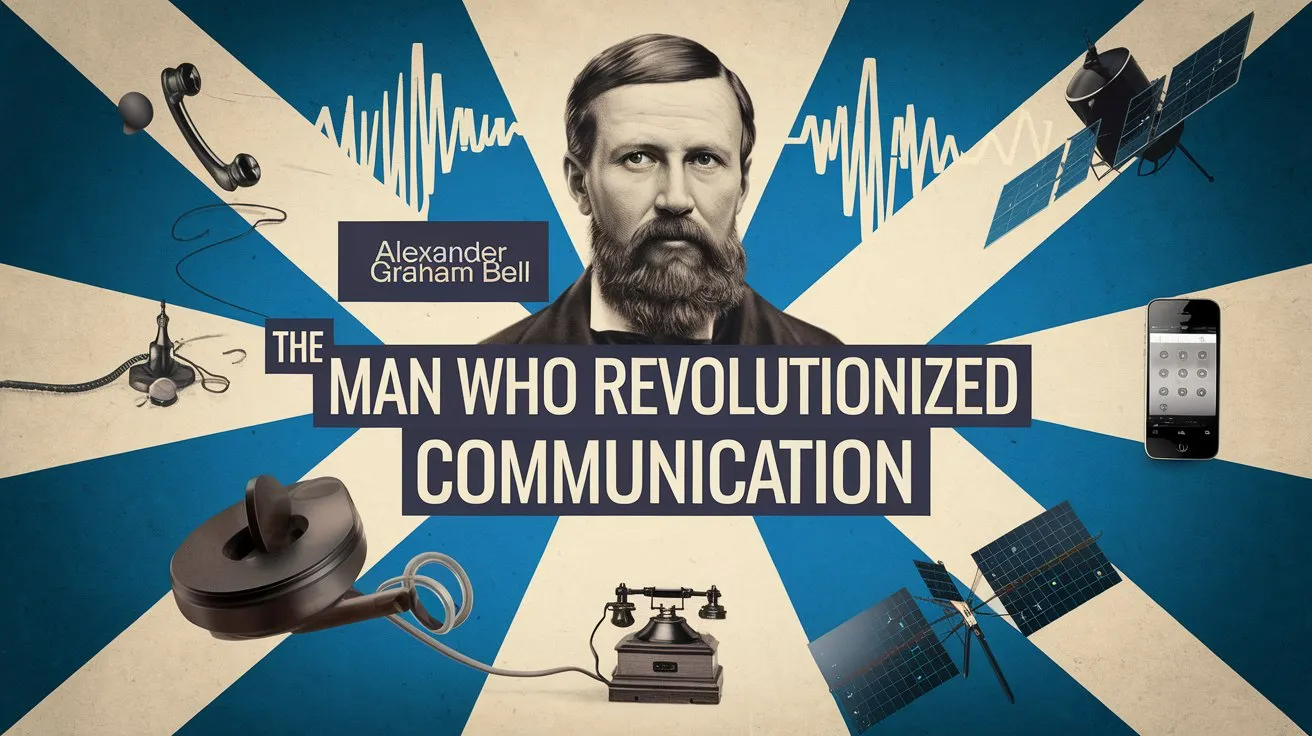
Born on March 3, 1847, in Edinburgh, Scotland, Alexander Graham Bell was immersed in an environment that fostered innovation. His mother was deaf, and his father was a speech therapist specializing in elocution. This familial background profoundly influenced Bell's fascination with sound and communication from an early age. His father's work on "Visible Speech," a system designed to help the deaf communicate, provided young Bell with a unique perspective on the mechanics of speech and hearing.
Bell's education and early career were marked by an insatiable curiosity about how sound worked and how it could be harnessed to improve human communication. His move to Canada in 1870 and later to the United States opened new opportunities, allowing him to experiment with acoustics and pursue his interest in teaching the deaf. These experiences would be pivotal in shaping his future innovations.
In the 1870s, communication technology was dominated by the telegraph, which could transmit coded messages over long distances. However, the idea of transmitting the human voice electronically was still a distant dream. Bell, driven by his understanding of sound and a desire to improve communication for the deaf, began experimenting with ways to convert sound into electrical signals.
On March 10, 1876, Bell achieved a breakthrough that would change the world. He successfully transmitted the first intelligible words over a wire to his assistant, Thomas Watson: "Mr. Watson, come here, I want to see you." This moment marked the birth of the telephone, a device that would revolutionize communication by enabling real-time voice conversations over long distances.
Bell's invention was not just a technological marvel; it was a catalyst for social and economic change. The telephone quickly became a vital tool for businesses, governments, and individuals, shrinking the world and making communication faster and more efficient. The impact of Bell's invention is evident in the fact that today's global communication networks are built on principles he first explored over a century ago.
While the telephone is Bell's most famous invention, his contributions to technology and science extend far beyond this single achievement. His relentless curiosity and inventive spirit led him to explore various fields, including aeronautics, optical telecommunications, and medical research.
Bell was a founding member of the National Geographic Society, where he played a crucial role in advancing geographical and scientific knowledge. He also made significant strides in aviation, designing the Silver Dart, one of the first airplanes to fly in Canada. His work in hydrofoils led to the development of faster watercraft, and his research into optical telecommunications paved the way for technologies like fiber optics, which are integral to modern communication networks.
Bell's innovations were not limited to devices and machines; he was also deeply invested in improving the lives of the deaf. He founded several institutions, including the Volta Bureau, dedicated to the study and education of deaf individuals. His work in this area was driven by a passion for helping others and a belief that technology could be harnessed to improve lives.
Alexander Graham Bell's legacy is evident in the communication technologies we use today. The telephone was the precursor to the vast and interconnected communication systems that now span the globe, enabling instant communication regardless of distance. The principles Bell established in his experiments laid the foundation for the development of wireless communication, the internet, and even satellite systems.
Bell's vision of a world where people could communicate effortlessly across great distances has come to fruition in ways he could never have imagined. Yet, it is his pioneering work that made these advancements possible. His ability to see beyond the limitations of his time and to push the boundaries of what was considered possible is a testament to his genius.
Alexander Graham Bell was not just an inventor; he was a visionary who saw the potential of technology to transform society. His invention of the telephone did more than make communication easier; it redefined the way we connect with each other. Bell's legacy is not just in the devices we use but in the very concept of communication itself—a concept that continues to evolve and expand, guided by the principles he established.
As we look at the smartphones in our hands and the global networks that connect us, we are reminded of Bell's contribution to the modern world. His relentless pursuit of innovation and his belief in the power of communication have left an indelible mark on history, one that will continue to shape our future.
FAQs
1. What was Alexander Graham Bell's most famous invention?
Alexander Graham Bell is best known for inventing the telephone, which revolutionized communication by allowing people to speak with each other over long distances.
2. How did Bell's early life influence his work?
Bell's interest in sound and communication was influenced by his mother's deafness and his father's work in speech therapy. These experiences inspired him to explore ways to improve communication, particularly for the deaf.
3. What other fields did Bell contribute to?
Beyond the telephone, Bell made significant contributions to aeronautics, optical telecommunications, and medical research. He was also a founding member of the National Geographic Society.
4. How has Bell's work impacted modern communication?
Bell's invention of the telephone laid the foundation for modern communication networks, including wireless communication, the internet, and satellite systems. His work continues to influence the way we connect today.
5. What was the first message ever transmitted by telephone?
The first intelligible words transmitted by telephone were "Mr. Watson, come here, I want to see you," spoken by Bell to his assistant, Thomas Watson, on March 10, 1876.
To know more, watch our video : https://www.youtube.com/shorts/gBrLqFEV8fI